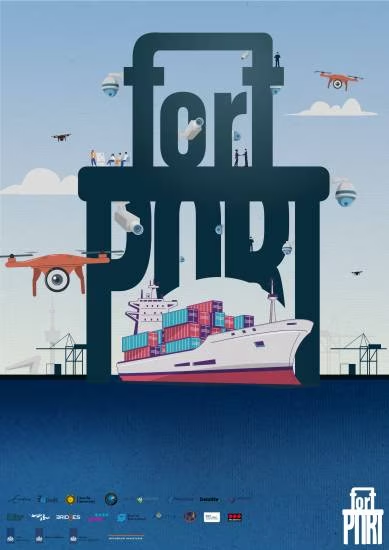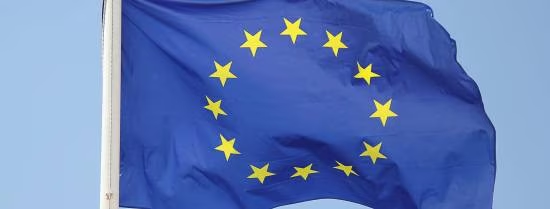 Towards sustainable cost and funding mechanisms for civil litigation in Europe
Towards sustainable cost and funding mechanisms for civil litigation in EuropeDe kern van effectieve toegang tot civiele justitie bestaat uit procesfinanciering en kostenbeheer. Toegang tot civiele justitie staat onder druk door bezuinigende regeringen, hoge kosten en inefficiënte procedures. Het Vici project zal nieuwe wegen naar civielrechtelijke financiering en kostenregelingen beoordelen met het oog op de ontwikkeling van een evenwichtig financieringssysteem en zo de toegang tot de rechter in Europa veiligstellen.
Projectleider: Prof. Xandra Kramer.
 Focusing on the Right Things in the Port of Rotterdam (FORT-PORT)
Focusing on the Right Things in the Port of Rotterdam (FORT-PORT)FORT-PORT heeft als doel beter inzichtelijk te maken hoe criminele organisaties die betrokken zijn bij cocaïnehandel en mensensmokkel opereren in en rond de Rotterdamse haven. Deze inzichten zullen bestuursactoren in staat stellen proactief in te grijpen en zo gerelateerd geweld en schade te voorkomen. We willen de knelpunten en succesfactoren in de bestaande publiek-private samenwerking in de haven inzichtelijk maken en uitwisseling met andere havens stimuleren. Gefinancierd door het Kennis- en Innovatieconvenant van de Nederlandse Organisatie voor Wetenschappelijk Onderzoek (NWO).
Projectleider: prof.dr. (Karin) CG van Wingerde.
 AI Multi‐Agency Public Safety Issues (AI MAPS)
AI Multi‐Agency Public Safety Issues (AI MAPS)AI MAPS focuses on the ethical, legal and social aspects of AI (ELSA) development and application - to prevent the solution from being worse than the problem. This project’s 20 partners across academic research, government, business, and civil society will create a mutual-learning ecosystem of quadruple helix agents to responsibly guide the growing use of AI applications. Together, they will combine their knowledge, experiences and perspectives to produce ELSA guidelines to best meet diverse citizen needs and an investment framework that will provide guidance on what kinds of AI applications are worth investing in. Funded by Dutch Research Council (NWO) Synergy Theme Artificial Intelligence.
Project leader: prof.dr. (Gabriele) G Jacobs (ESSB), prof.dr. (Evert) EF Stamhuis, LLM and prof.dr. (Klaus) K Heine.
 Vehicle to Grid for Equitable Zero-Emission Transitions in positive energy districts (V2G-Quests)
Vehicle to Grid for Equitable Zero-Emission Transitions in positive energy districts (V2G-Quests)The V2G-QUESTS project aims to provide comprehensive guidelines for the adoption of Vehicle-to-Grid (V2G) technology within urban Positive Energy Districts (PEDs), ensuring equitable access to clean energy transitions. It examines the potential of electric vehicles (EVs) as dynamic energy storage solutions that can balance the grid and support the integration of renewable energy sources. Co-funded by the EU and part of the Driving Urban Transitions Partnership.
Project leaders: prof.dr. LS (Leonie) Reins and prof.dr. WM (Martin) de Jong
 Tackling ‘Fixophobia’: Improving repair practices for consumer electronics
Tackling ‘Fixophobia’: Improving repair practices for consumer electronicsThe rapid replacement of consumer electronics leads to CO2-emissions, resource scarcity, e-waste and pollution, thereby providing important environmental and societal challenges. Extending the lifetime of these products via repair is considered essential to tackle these challenges. Yet, consumers and organisations in the consumer electronics value chain currently lack trust in, acceptance and adoption of repair practices. In collaboration with all value chain actors, this project aims to develop new interdisciplinary theories, tools and repair system innovations (integrating marketing, design, circular business, law and tax) to realize a change in the whole value chain and transition to a Circular Economy. Funded by NWO.
Project leaders: prof.mr.dr. MMWD (Madeleine) Merkx, dr. ML (Martijn) Schippers, LL.M, and mr.dr. JLE (Johan) Vannerom.
 Project to Research Options for Strengthening Prosperity and Economic Resilience in the EU (PROSPER)
Project to Research Options for Strengthening Prosperity and Economic Resilience in the EU (PROSPER)This Jean Monnet Network for Policy Debate comprises 12 partner institutions from 12 EU member states who will conduct research and policy analysis on an economy that works for people. PROSPER establishes an unparalleled network of experts in economics, law, politics, and social sciences to explore options to strengthen prosperity and economic resilience in the EU. PROSPER will examine holistically a variety of EU policy areas which are usually treated as separate silos – e.g. EMU, fiscal policy, banking & capital markets union, social policy, tax, trade, technology, competitiveness, industrial policy, and economic security – and will reflect on how these can secure fundamental EU values – democracy and the rule of law, strategic autonomy and good governance, social inclusion and climate protection.
Project leader: prof.dr. F (Fabian) Amtenbrink
 Social, User aCCeptable, Economically Sustainable Systems for hydrogen (Hy-SUCCESS)
Social, User aCCeptable, Economically Sustainable Systems for hydrogen (Hy-SUCCESS)HySUCCESS aims to comprehensively investigate the socio-economic factors influencing the role of hydrogen in a sustainable energy system. The consortium will evaluate how economic, legal, policy, and socio-cultural aspects may hinder or promote the implementation of green hydrogen. In addition, HySUCCESS aims to identify strategies to overcome barriers to scale up green hydrogen production and use. It will also evaluate the environmental impacts of using green hydrogen and devise measures to mitigate negative impacts. These insights will clarify the potential of green hydrogen in future energy and materials systems. Funded in collaboration by NWO and the NGF programme Groenvermogen NL.
Project leaders: prof.dr. LS (Leonie) Reins and dr. A (Alberto) Quintavalla
